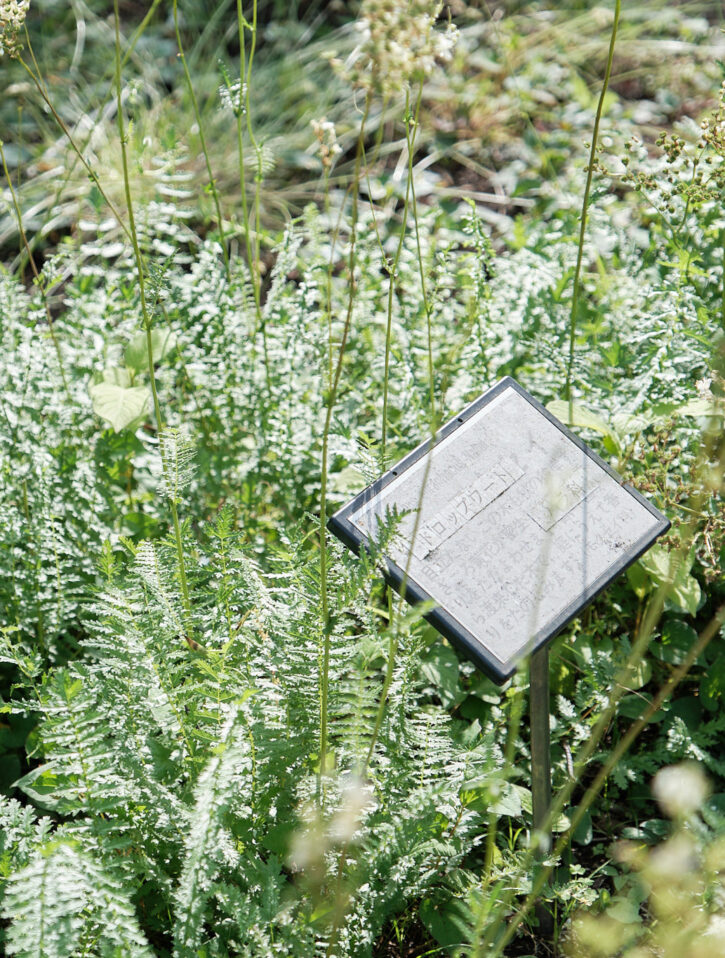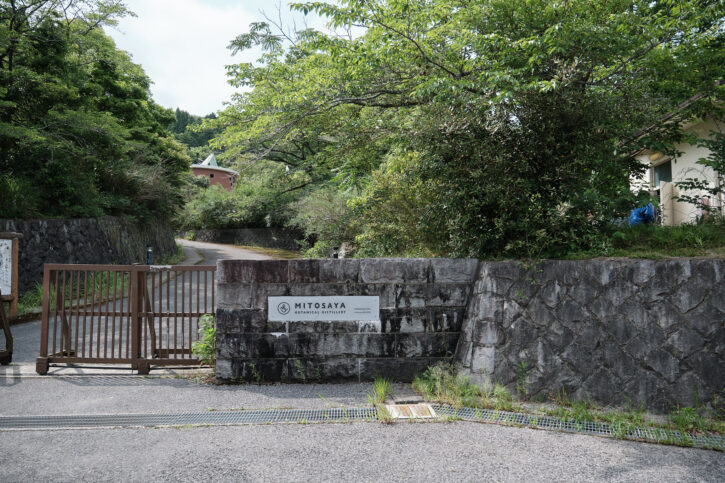
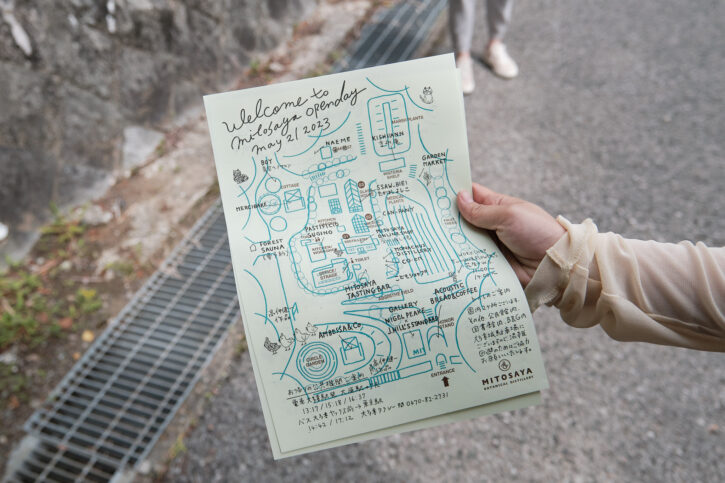
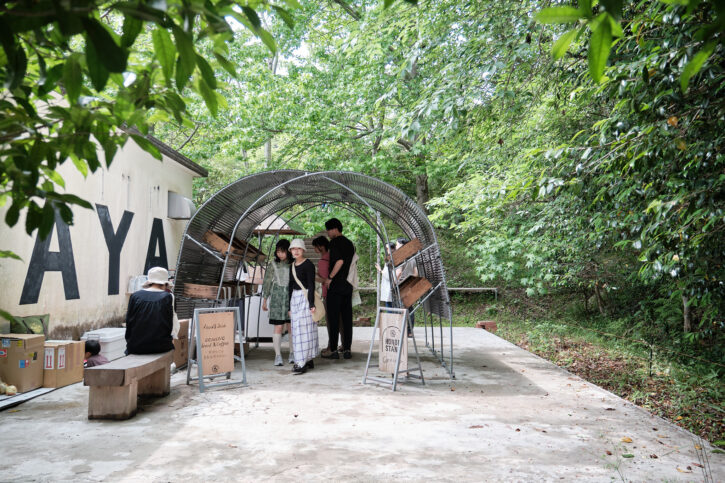
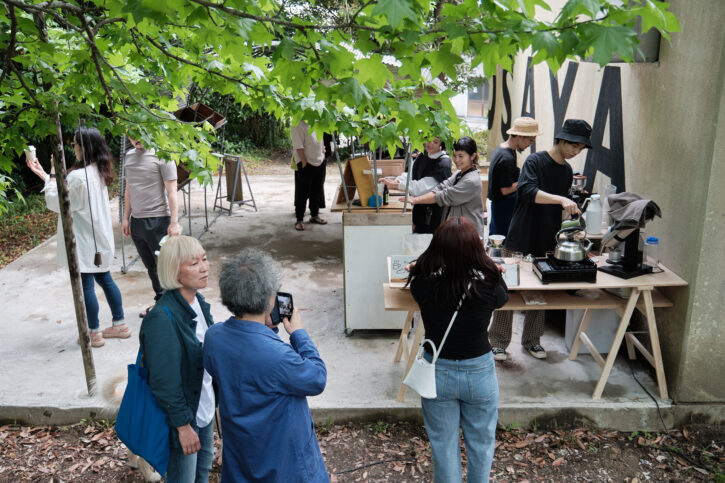
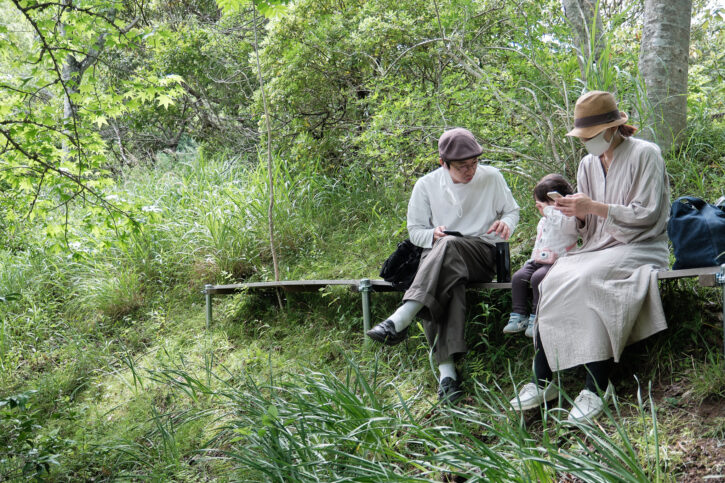
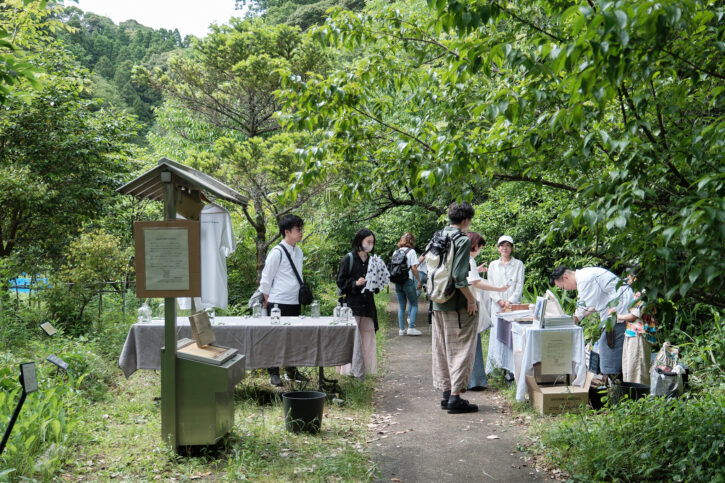
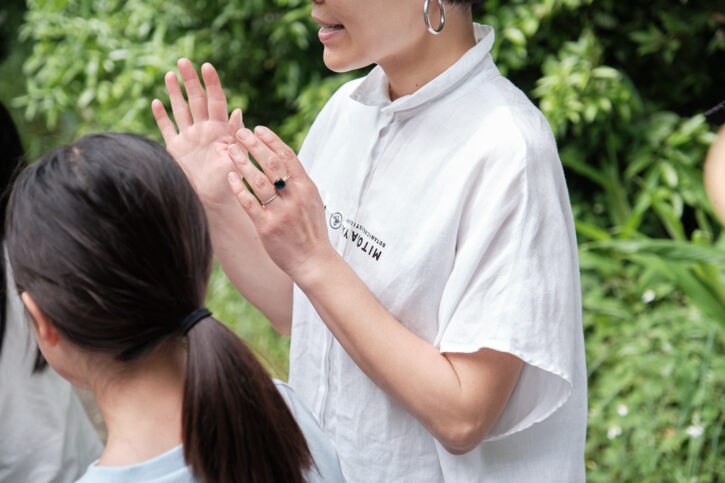
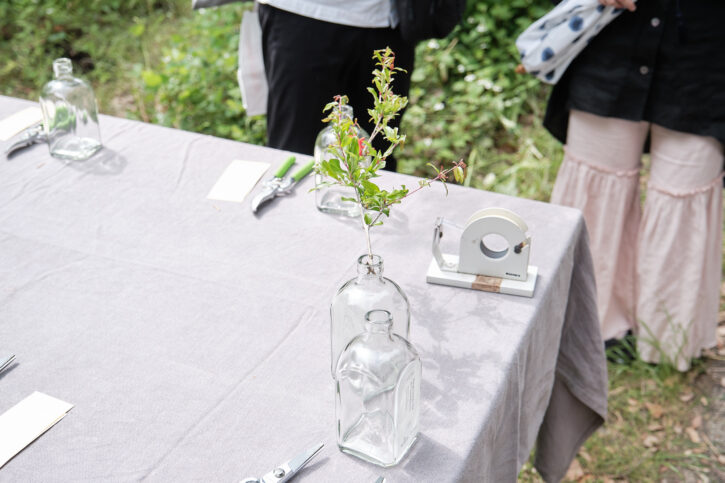
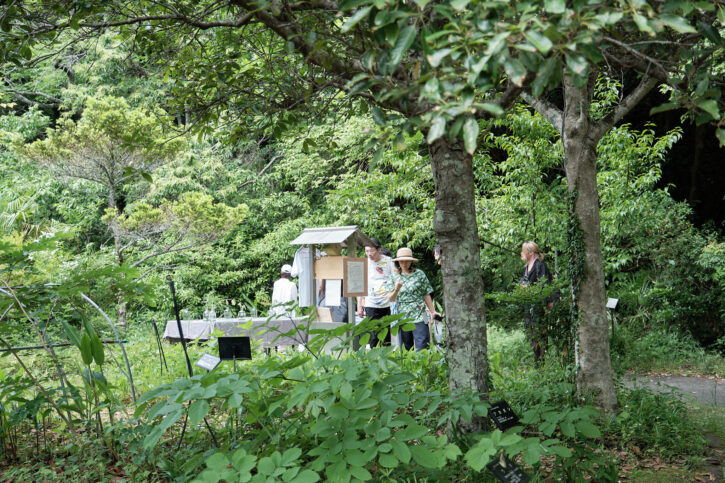
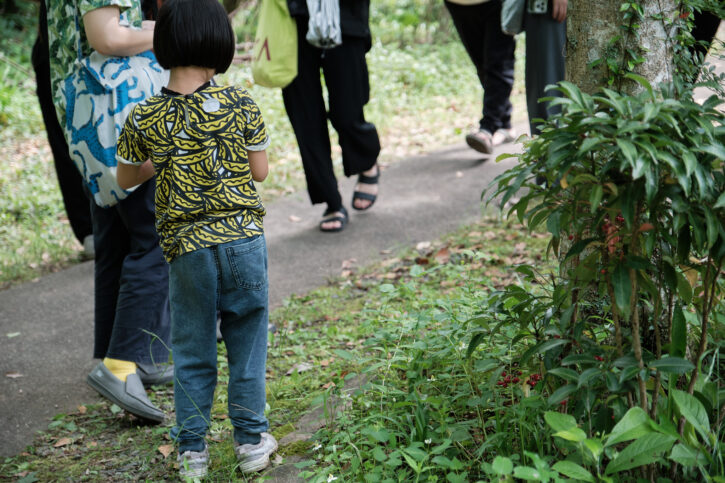
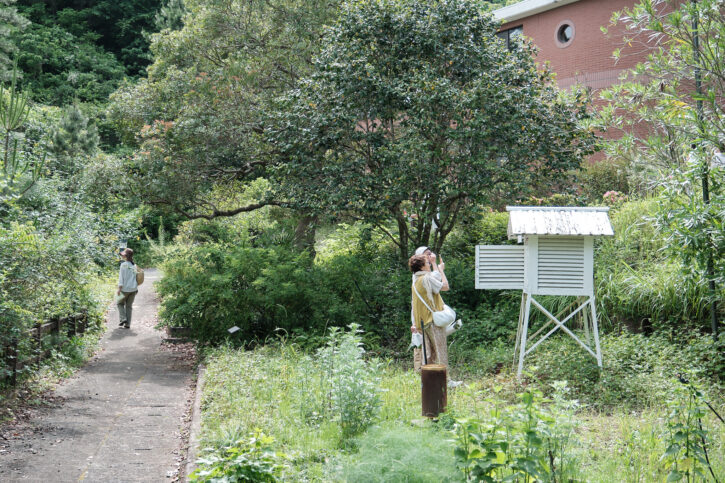
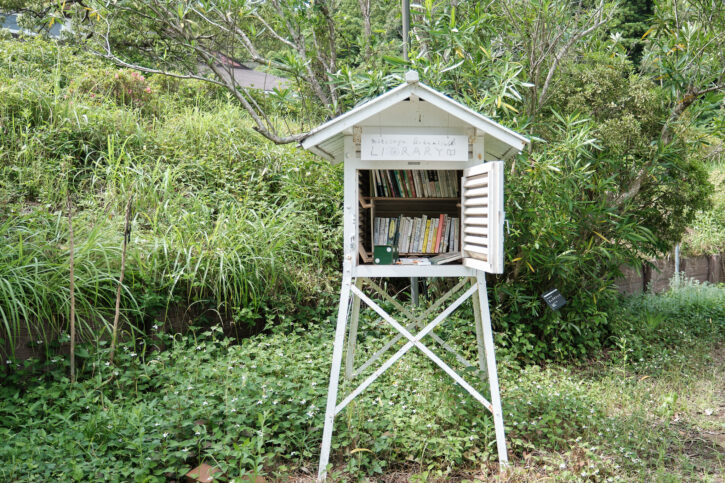
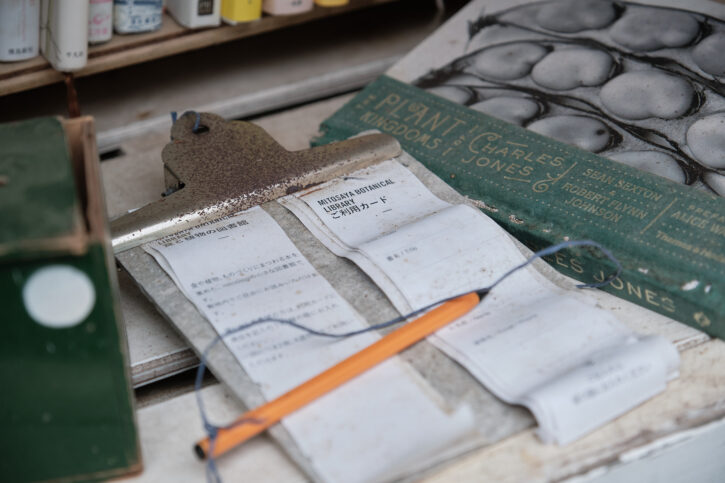
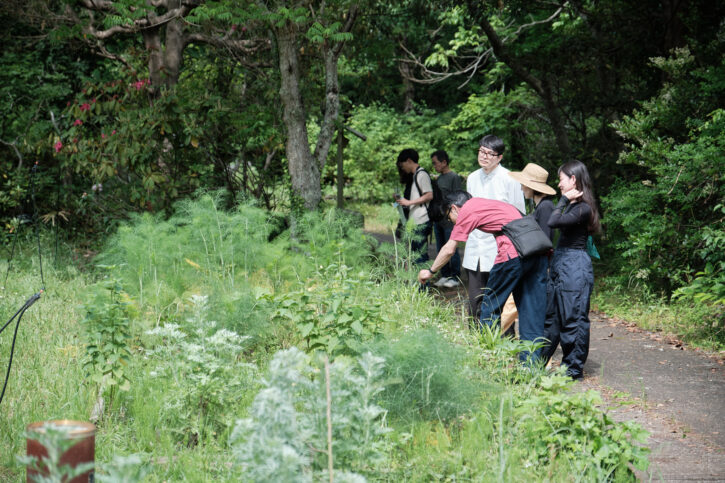
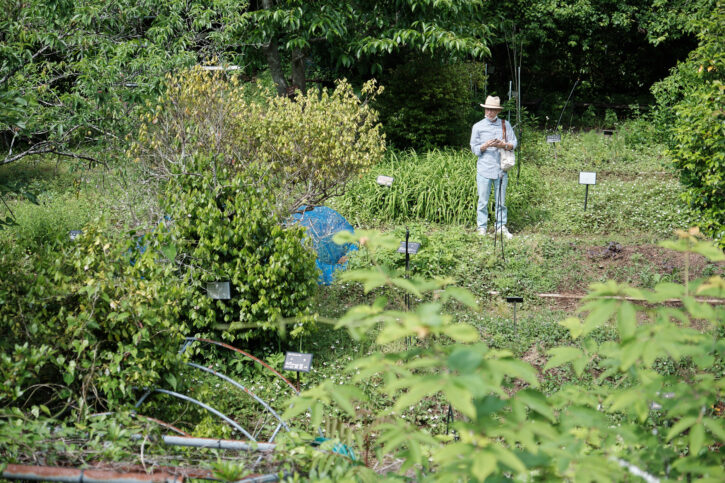
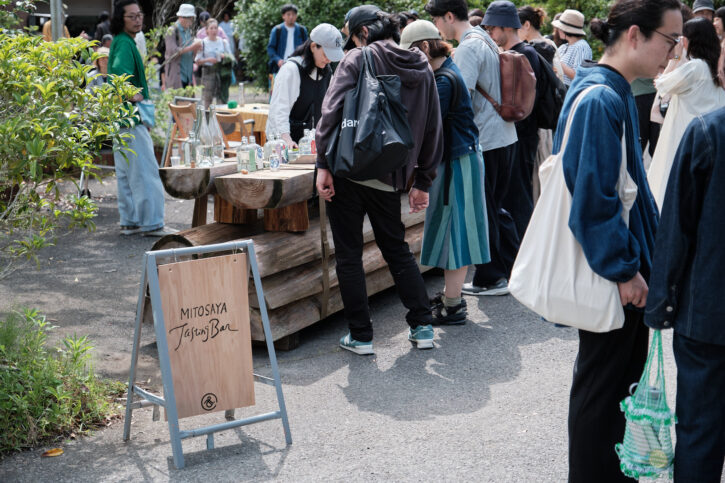
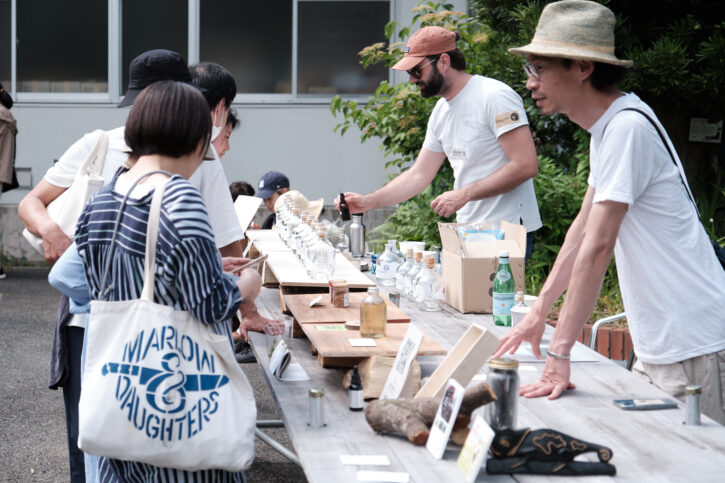
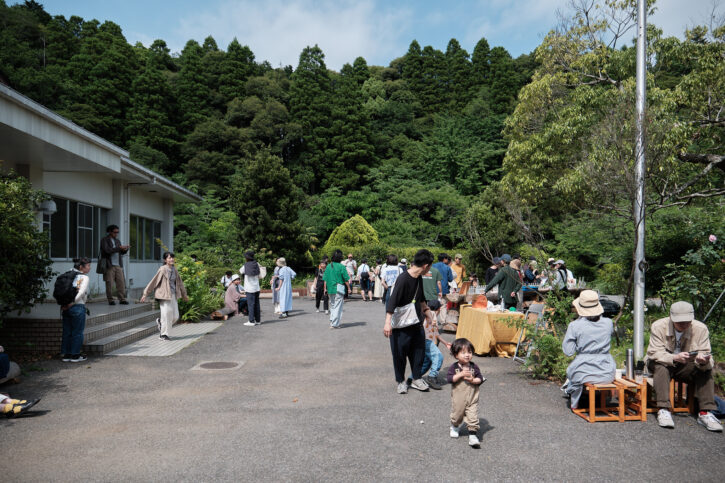
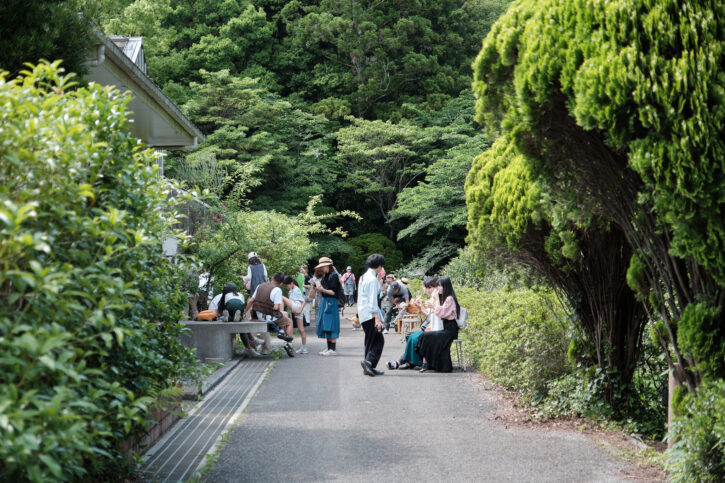
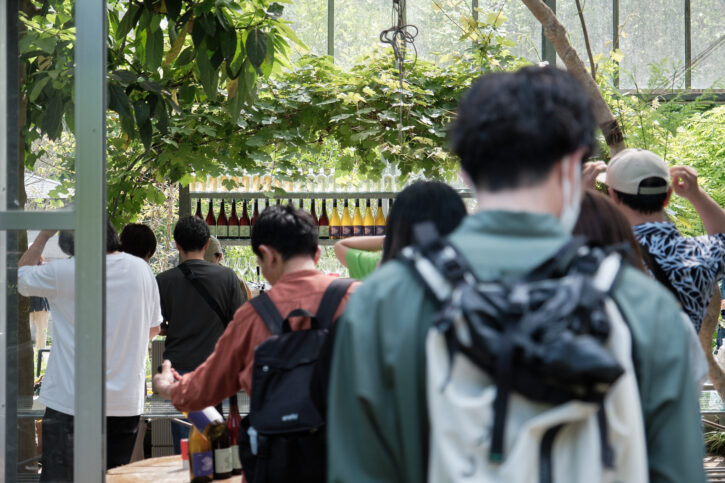
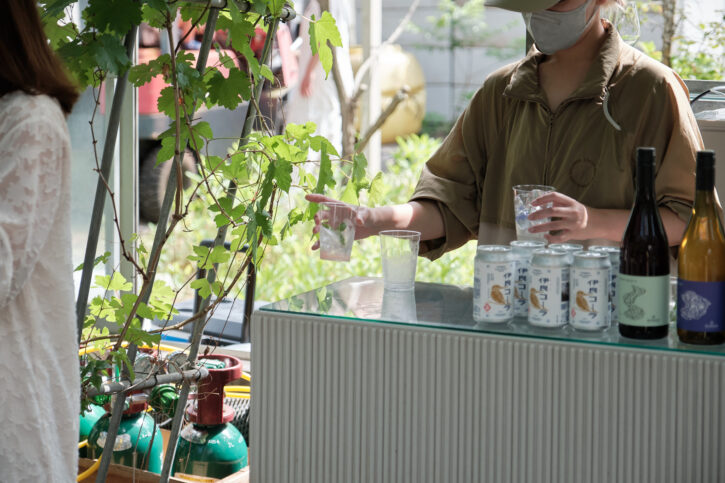
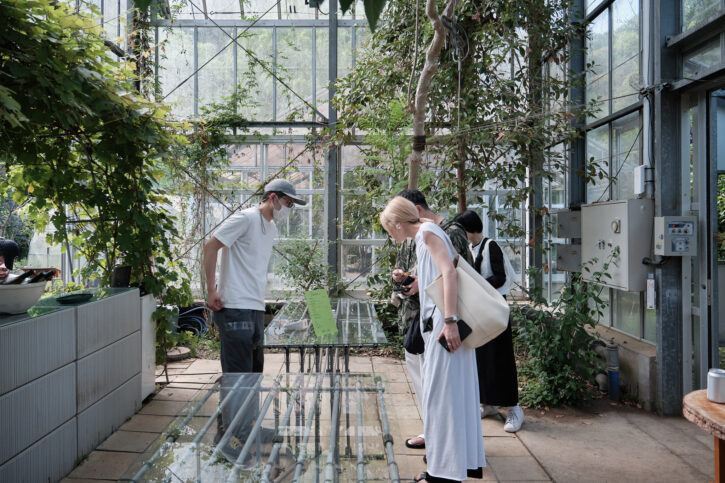
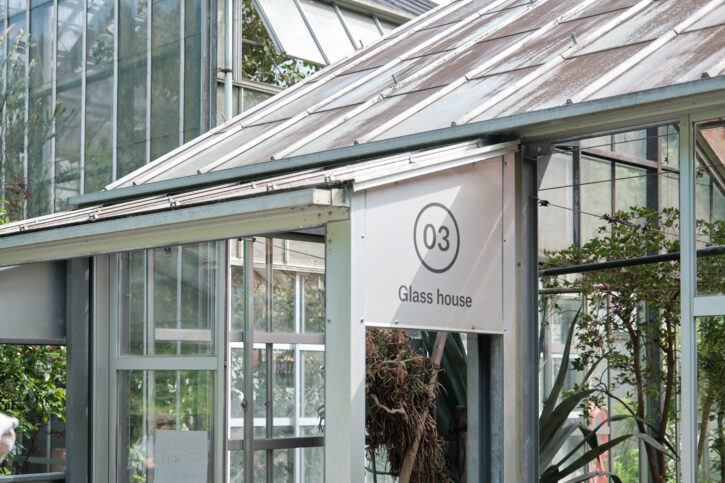
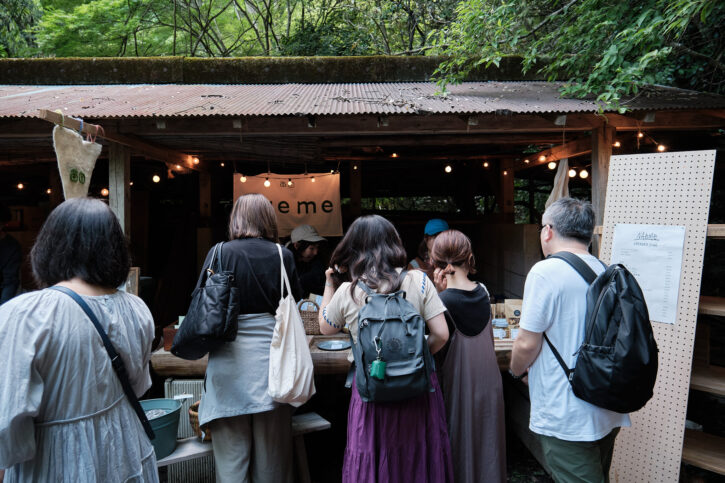
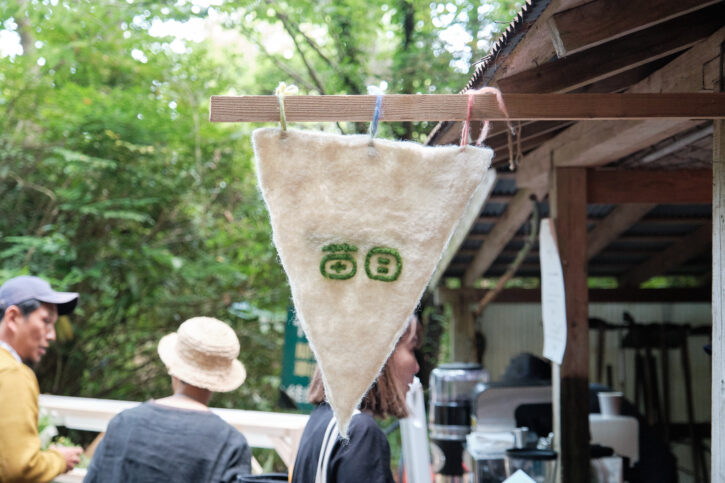
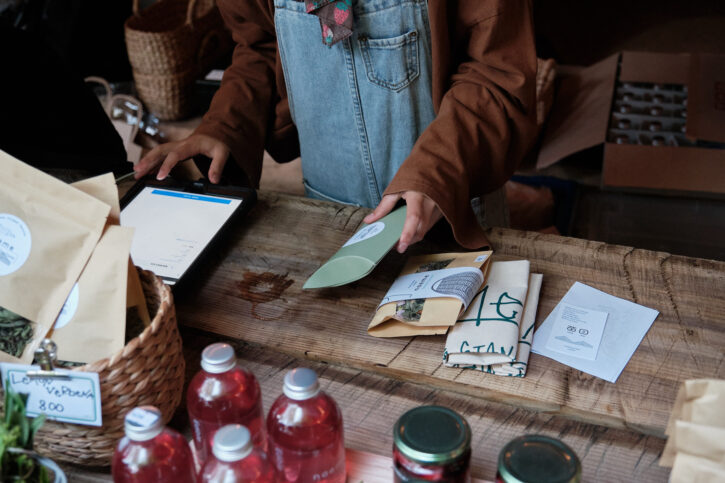
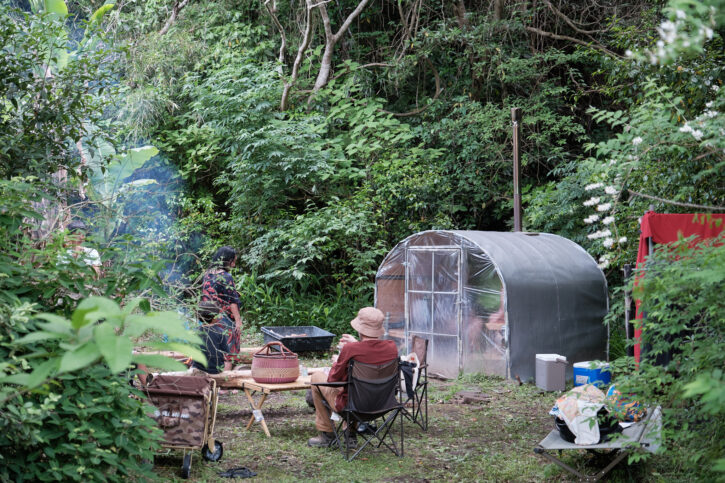
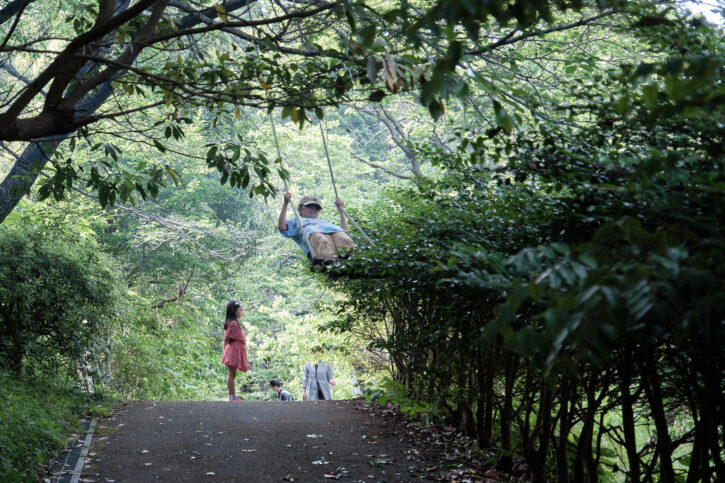
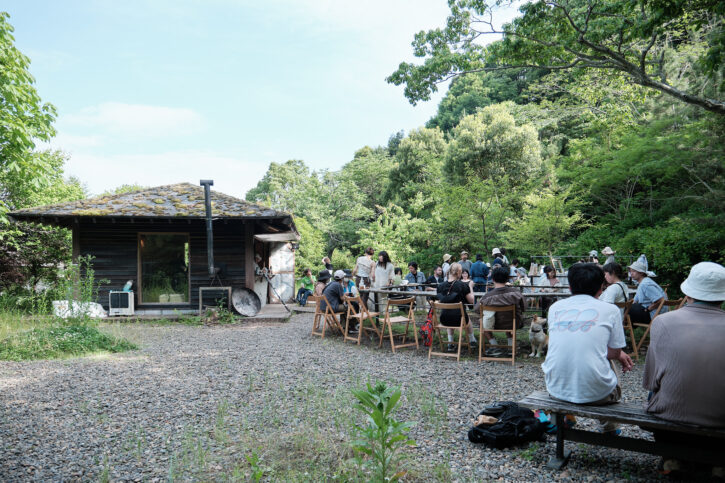
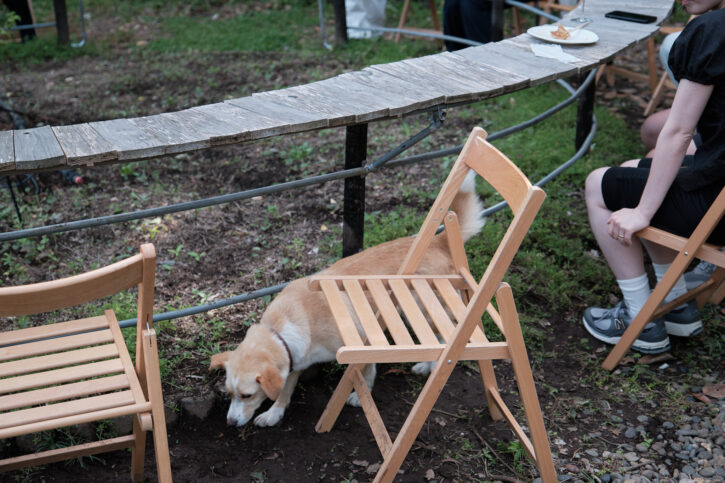
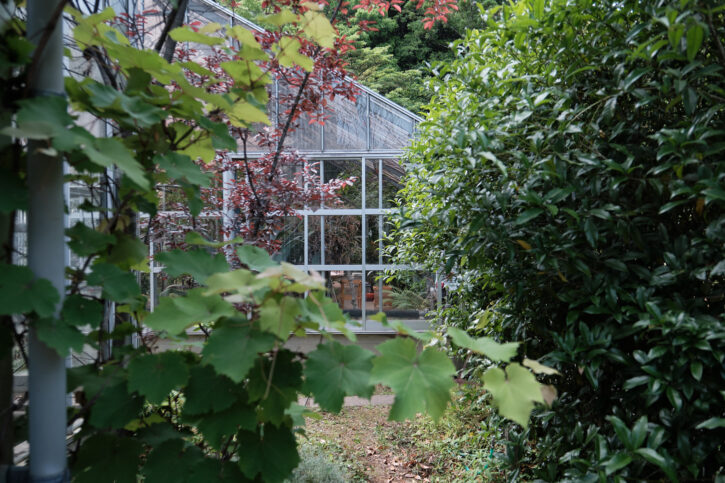
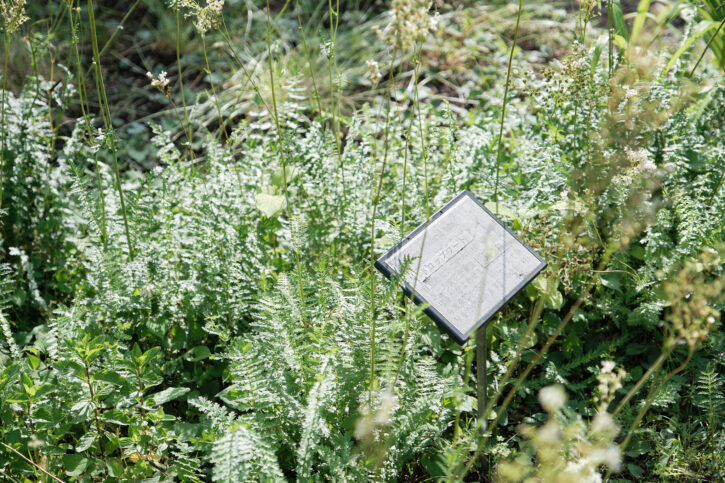
5月21日(日)に、千葉県大多喜町の「 mitosaya 薬草園蒸留所 」のオープンデーにお邪魔した。この場所は、元県立の薬草園だった場所を閉園後に引き継ぎ、元ブックストア 「 UTRECHT(ユトレヒト) 」の書店主・江口宏志さんが転身し始めた蒸留所。オープンデーとは、いつもは入ることのできない蒸留所の敷地に入ることができる公開日、当日は1日限定のショップやレストランがオープンしたり、ワークショップが開催されたりする、今回は予約制のサウナもあった。現在は春と秋、季節の良い時期に、年に2回をベースに開催されている。
この場所が1987年に県立の薬草園としてオープンした際には、敷地中に世界中から集められた多種多様な薬草が植えられていたのだろう、植物の種類や名称を示す古びた札が、いまでも当時の様子を伝えてくれている。管理棟だった建物が蒸留所へと改修され、2018年から「 mitosaya 薬草園蒸留所 」として利用されている。
アスファルトで舗装がなされた道路に鉄製の門扉が設置された場所が、県立の薬草園だった頃の入口である。現在は、元々設備の点検用通路と階段だった小径が、蒸留所の入口として利用されている。このような小さくて新しい場の始まりに相応しい読み替えの集積が、この場所をより魅力的なものに感じさせてくれる。
偶然、蒸留所の設計(リノベーション)を担当した中山英之さんにお会いし、久しぶりにご挨拶。昨年3月までポーラ美術館で開催されていた「 モネ展 」の会場構成の感想を伝え雑談。「 もはや天国のようですね 」と中山さんが言っていたが、出店者として来園者を迎える人たち自身が年2回のこの場所との再会を最も楽しんでいるようで、本当にそうだなぁ、と思った。
そもそも、閉園した薬草園を引き継ぎ、さまざまな果樹や植物を原料にした蒸留酒をつくる場として利用すること自体、もはや辻褄が合いすぎている。その出会いは、本当に運命的なものであっただろう。その大切な仕事場、日常の活動の場が開かれて「 お邪魔させてもらっている 」という感覚も、とても心地かった。本来、知らない土地を訪れる醍醐味も、そのような体験にあるように思う。
写真のグラスハウスは、元々敷地内にあったものを改修して利用しているスペース、当日はバーとして利用されていた。このインテリアは、元々敷地内にあったボックスや農業用のビニルハウスのパイプなどをかき集めて転用し、江口さん自身がつくったのだそう。ここがmitosayaの価値を最も体現しているように見えて、場づくりとはそういうものだな、と思う。
何かを始める「 Place-making / 場づくり 」の方法論として、新しい場所を切り開いて状況をつくり、そこに人の流れを生み、新たな場を育てていくことの良さもある。しかし、いままでそこにあったものの意味を知り、その文脈に共感した者が、その場を引き継ぎ、手を加えていくやり方の良さもある。いきなり大きく変える、ではなく、少しずつ無理なくアップデートしていくこと。そこに何かがあったことも、そこに何もなかったことにも、どちらにも意味があるのかもしれない。
I visited the open day of “MITOSAYA BOTANICAL DISTILLEY” in Ota-ki Town, Chiba Prefecture, in May. This place is a distillery that was transformed by Hiroshi Eguchi, the former owner of the bookshop “UTRECHT,” after taking over the site of a former prefectural medicinal herb garden.
On the open day, which allows entry into the normally inaccessible distillery grounds, there were limited-time shops, restaurants, and workshops available. Currently, the open day is held twice a year, in spring and autumn, during the favorable seasons.
By chance, I met Hideyuki Nakayama, who was in charge of the distillery’s design and renovation, and we exchanged greetings. I conveyed my impressions of the exhibition design at the Monet exhibition held at the Pola Museum, and he said, “this place like heaven” The people who welcome visitors as vendors seem to enjoy the reunion with this place twice a year the most, and I truly felt that was the case.
In the first place, the fact that they took over the closed medicinal herb garden and converted it into a distillery is already incredibly fitting and beautiful. The feeling of “being allowed to visit” their precious workspace and activity place was also very comforting. I believe that the essence of visiting unfamiliar places lies in such experiences.
The glasshouse on photo shows a space that was renovated from the original greenhouse on the premises and was used as a bar on the open day. The interior was created by collecting boxes and agricultural house pipes that were originally on the site, and it was made by Eguchi himself. It seems that this space embodies the true value of mitosaya, and it made me realize that creating a place is about such things.
